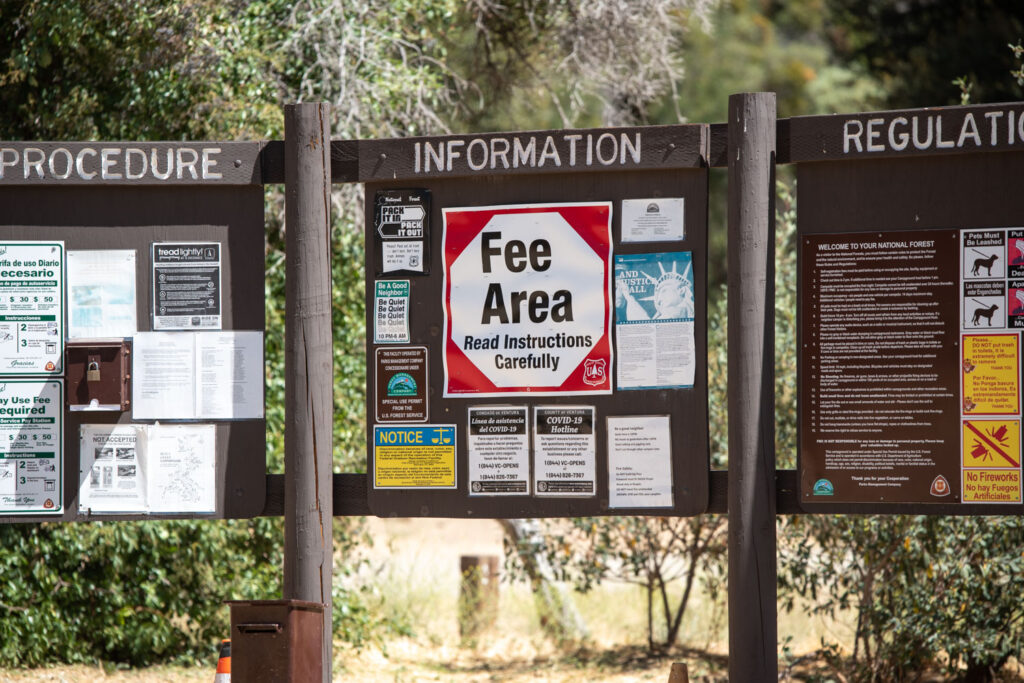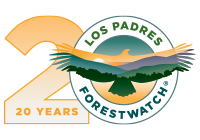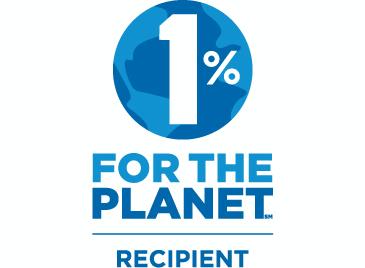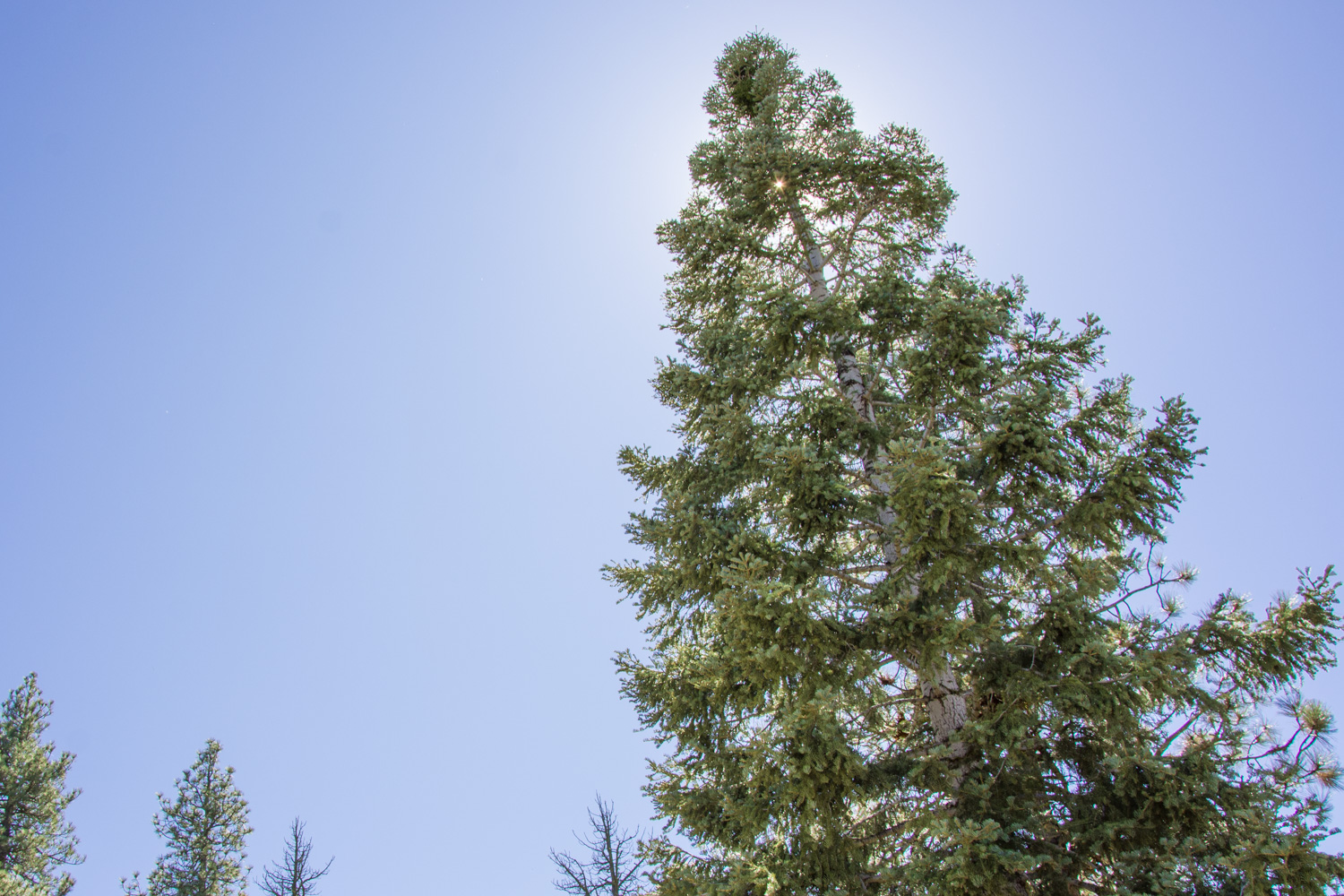Pitching a tent, taking a hike, or enjoying the beach is about to get more expensive on local public lands.

The Forest Service announced today that it has authorized fee increases at campgrounds and day use areas throughout Los Padres National Forest, from Monterey County to Los Angeles County. It will be the second rate hike since 2016, when the agency turned over management of most recreation sites in the national forest to a private for-profit company.
Parks Management Company—a privately-owned corporation that now operates most campgrounds and day use areas in Los Padres National Forest—requested the fee increases. Los Padres ForestWatch, a local nonprofit organization that is opposed to the privatization of public lands, requested a copy of the company’s proposal but the Forest Service has refused to provide it because the company marked it as “Confidential Internal Proprietary Information” in an attempt to evade public disclosure.
The fee increases would raise the nightly cost of camping by 50%, from $20 to $30 per night. The Forest Service is approving the fee increases without any opportunity for the public to review or provide input. This is consistent with how the agency has suppressed public input throughout its six-year effort to privatize public campgrounds in Los Padres National Forest. The Forest Service’s transfer of recreation sites to a private concessionaire in 2016 was similarly conducted behind closed doors despite repeated requests from the public to make the process more transparent.
“This surprise fee increase adds to a long string of instances over the past five years where the Forest Service is shutting the public out of the decision-making process,” said ForestWatch Director of Conservation & Research Bryant Baker. “The agency continues to side with private companies instead of the public’s right to know and the right to be involved.”
Earlier this summer, the agency refused a ForestWatch request to reign in the extreme prices that the concessionaire charges for firewood and other camping necessities such as propane, water, and first aid supplies, some of which are up to three times the normal retail price.
The company’s justification for the new fee increases is unclear. According to national forest officials, the concessionaire is citing increased costs and is seeking to align fees more closely with other campgrounds in the area. Yet other campgrounds in the region that charge higher nightly rates typically also offer more amenities than national forest sites, such as running water, flush toilets, showers, general stores, ranger and interpretive programs, on-site hosts, and electrical hookups. Most campgrounds in Los Padres National Forest lack these amenities, especially the more remote ones, so they are much cheaper to operate.
In addition to a lack of transparency, other concerns include the fact that higher fees will drive campers to seek out remote, informal campsites that could create unsanitary conditions, increase wildfire ignition risk, pollute mountain streams with human waste, and trample sensitive wildlife habitat. Fee increases tend to have a disproportionate impact on low-income families who are already struggling to afford gas, food, and supplies. Increased recreation fees impose barriers to access that hit low-income communities the hardest.
“Camping has traditionally been one of the most economical activities for working families to enjoy,” said ForestWatch’s Director of Youth & Community Engagement Graciela Cabello. “The new increase will hit low-income families the hardest, which ultimately impacts everything from the health of communities to how invested people are in becoming stewards and advocates of our public lands down the line. There are already several barriers to entry when it comes to camping, and land management agencies should be working with the community to make them more accessible to all, not create more barriers.”
Parks Management Company was selected as concessionaire in November 2016 amidst widespread public outcry. Rates increased at nearly all campgrounds and day use sites, with some fees increasing 300%. Concerns were expressed over the financial arrangement in the concessionaire contract. Specifically, the company is required to return 10% of all fees collected to the Forest Service but can avoid payment of some or all those fees by performing additional services or repairs.
To better understand the fee arrangement, ForestWatch in 2019 submitted a request under the Freedom of Information Act to help determine whether Parks Management Company was in compliance with its contractual agreements, and whether the company was performing the requisite maintenance and improvements to recreation sites. Nearly a year later, after not receiving a single record from the agency, ForestWatch filed a lawsuit in Washington DC, seeking to compel the Forest Service to release the requested records. That lawsuit is awaiting a final ruling by the judge, which is expected any day. Three years after ForestWatch’s initial request, the Forest Service continues to keep these public records hidden.







Comments are closed.